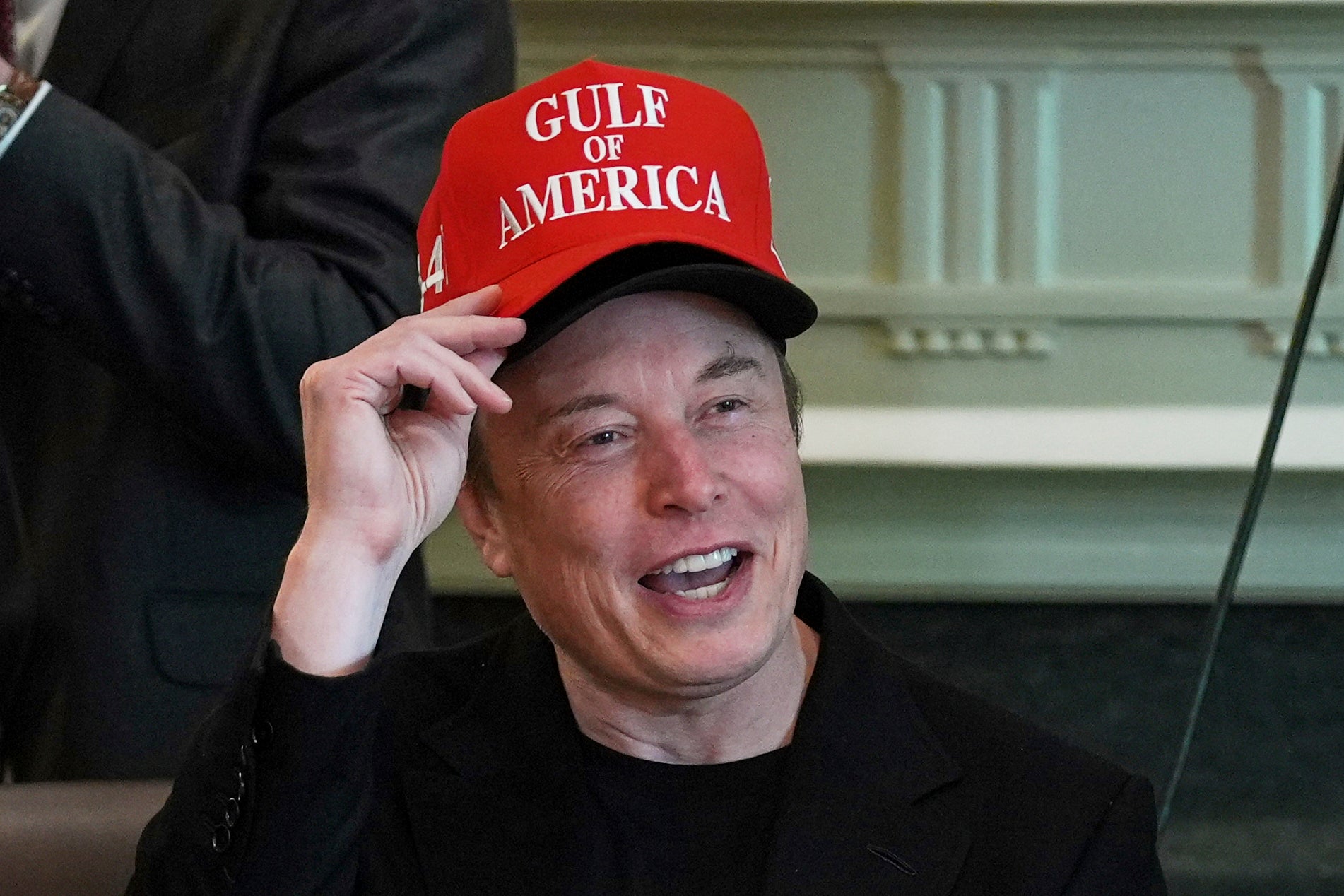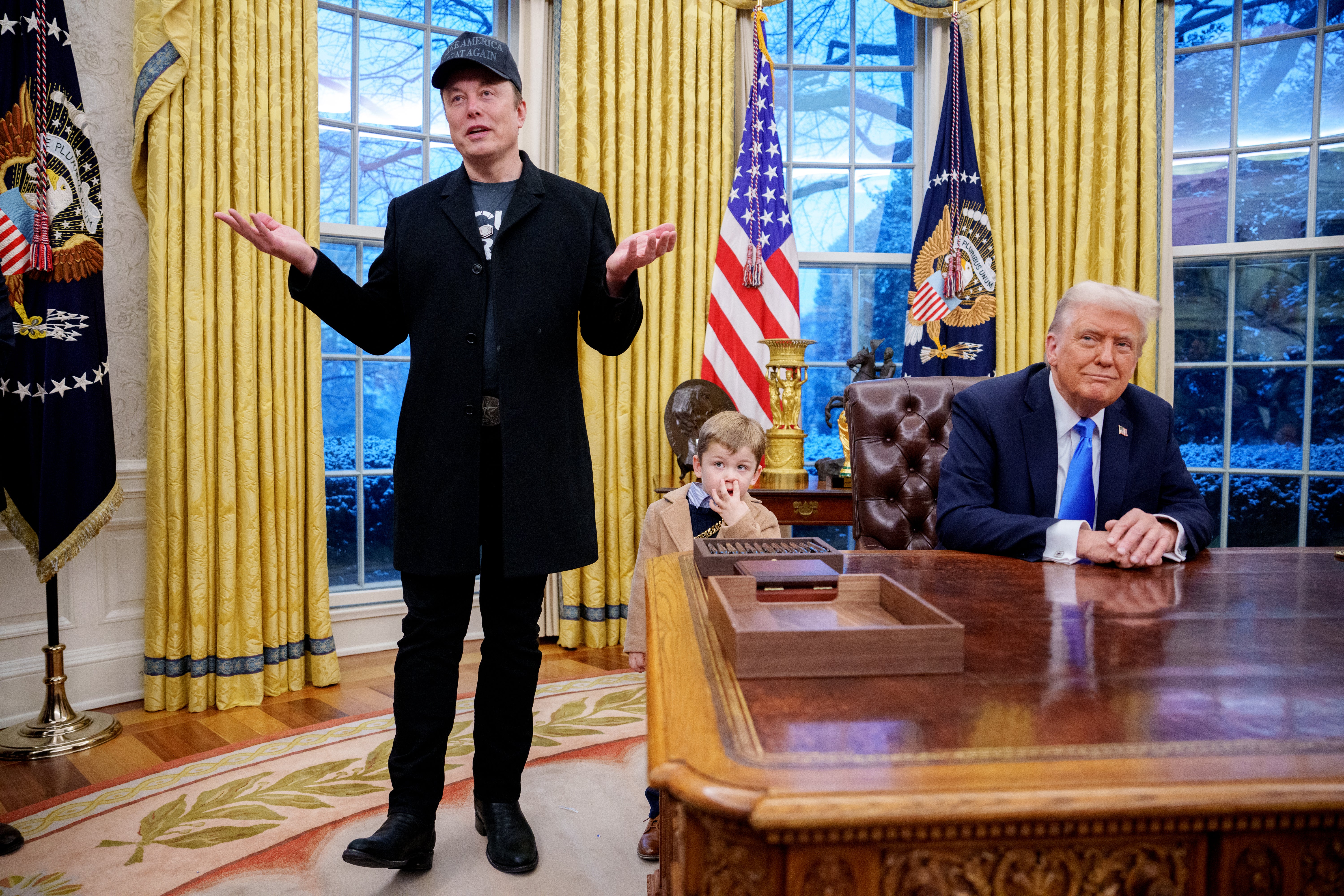Your support helps us to tell the story
From reproductive rights to climate change to Big Tech, The Independent is on the ground when the story is developing. Whether it’s investigating the financials of Elon Musk’s pro-Trump PAC or producing our latest documentary, ‘The A Word’, which shines a light on the American women fighting for reproductive rights, we know how important it is to parse out the facts from the messaging.
At such a critical moment in US history, we need reporters on the ground. Your donation allows us to keep sending journalists to speak to both sides of the story.
The Independent is trusted by Americans across the entire political spectrum. And unlike many other quality news outlets, we choose not to lock Americans out of our reporting and analysis with paywalls. We believe quality journalism should be available to everyone, paid for by those who can afford it.
Your support makes all the difference.
Read more
More than $220 million worth of contracts cancelled by Elon Musk’s Department of Government Efficiency (DOGE) have been brought back.
Forty-four of the government contracts ended by DOGE and Musk have been revived by federal agencies, according to a federal spending data review by The New York Times.
However, DOGE still lists 43 of those contracts on its website as having been terminated, and some were added after they had been restored. This led to several data errors on the site.
The White House told the outlet that the paperwork lag would be fixed. The contracts that have been rekindled include everything from software license agreements to partnerships with vendors in charge of data and records for the government. Most of the contracts came to an end in February and March amid demands that agencies make massive cutbacks.
Agencies subsequently restored the contracts, at times only days after they had been cancelled. For instance, the Environmental Protection Agency restored a contract after two and a half hours, but DOGE still listed the contract as canceled for weeks. The contract was subsequently extended, now costing more than previously.
Musk and DOGE set out to cut $1 trillion out of the $7 trillion federal budget, but the backtracking on cancelled contracts revealed the difficulties of making such expansive cuts. Contractors told the paper that as DOGE rushed to urge agencies to cancel contracts that were likely to be revived, as some were required by law, and some required skills that the government doesn’t have.

open image in gallery
“The DOGE Wall of Receipts provides the latest and most accurate information following a thorough assessment, which takes time,” White House spokesperson Harrison Fields told The New York Times. “Updates to the DOGE savings page will continue to be made promptly, and departments and agencies will keep highlighting the massive savings DOGE is achieving.”
DOGE has listed over 9,400 contracts it claims to have cancelled, totalling $32 billion in savings. The group claims to have saved $165 billion in taxpayer funds in total.
The White House spokesperson told The New York Times that the reversals it had found were “small potatoes” in comparison.
Musk has said from the beginning that the government would most likely have to backtrack on some of its spending cuts. Appearing on the Joe Rogan podcast in February, Musk said, “We need to act fast to stop wasting billions of dollars of taxpayer money. But if we make a mistake, we’ll reverse it quickly.”
However, Musk also said that DOGE would share the details of its work publicly, saying that they “can name the specifics, line by line.” But The New York Times found several errors on the so-called “Wall of Receipts,” often inflating the supposed savings. DOGE has taken credit for ending programs that finished years or at times decades ago. It has also counted the same cancellations more than once and, at one point, shared a claim that jumbled “billion” and “million.”
This month, DOGE removed a contract that had been cancelled for less than a day, but also added five revived contracts to its “terminations” list, claiming $57 million in savings, which had already been restored, according to the paper.
Contractor Larry Aldrich was told in February that his contract doing web design and making videos for the Department of Veterans Affairs site for veterans with PTSD had been cancelled. The agreement was reinstated two weeks later.
“The V.A. cannot do this work on its own,” Aldrich told the paper. “They don’t have the manpower or the skill set.”
The reversal started in the middle of February, less than a month into President Donald Trump’s second stint in the White House. On February 14, Raquel Romero and her husband lost their contract offering leadership training to Agriculture Department attorneys. They regained $45,000 in revenue when all their other federal business had dried up.
“We had lost all of the income that we were planning for calendar year 2025. We’ve had to sell our house. We’re in the process of moving into a condo,” she told The New York Times.
The department told the paper that it revived the contracts after finding that it was required by law. Romero added that she believed the reversal was due to a personal intervention by one attorney in the department, who Romero said retired two weeks later.

open image in gallery
Regarding contract reversals, the Department of Veterans Affairs comes on top with 16 cancelled and revived contracts. According to veterans’ groups speaking to the paper, some of the contracts were required by law, noting that one contract was for a contractor who helped veterans search for military records as evidence when applying for benefits, which was restored after just eight days.
Even with the revived contracts, experts say DOGE’s cuts have damaged the quality of government services.
“There doesn’t seem to be an approach to dig in on places where government services could really be improved,” the executive director of the Yale Budget Lab, Martha Gimbel, recently told The Guardian. “Any improvement in government services takes time. You have to invest. You have to build it out. You have to figure out how to fix it.”
“There has clearly been a degeneration of government services,” she added.
DOGE claimed to have saved $38 million over several years at the Department of Education after ending a contract to manage a data repository about schools across the country. However, lawmakers and advocates pushed back, arguing that the law required the information to be gathered for the government to know which schools were eligible for some grants. The contract was resurrected after 18 days; however, $17 million in funding had been removed.
The E.P.A. signed a contract with a company in Maryland in 2023 to help raise awareness about asthma. Contracting data revealed it was cancelled just after 4.30 p.m. on March 7 of this year. That same night, shortly before 7 p.m., it was reinstated. The E.P.A. told the paper that the reinstatement of a contract shows that the agency found that “funding action supported Administration priorities.”
The agency extended the contract for another year last month, agreeing to pay $171,000 more than before the contract was cancelled.
The Independent has contacted the White House for comment.

